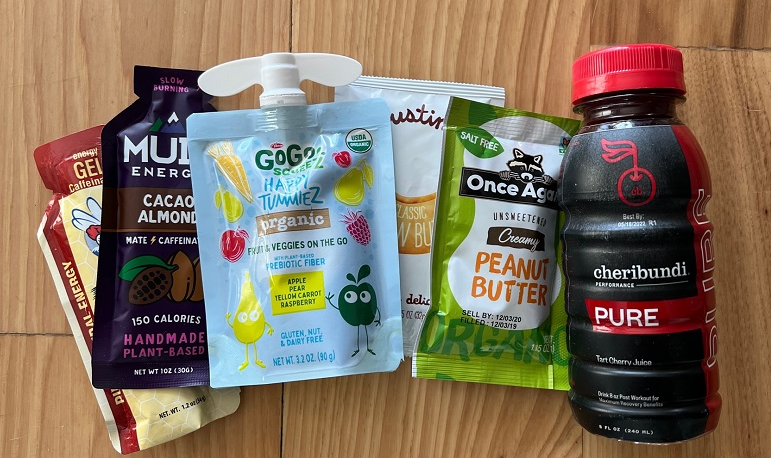Lace up your shoes, step outside, and breathe in the fresh air – it’s time to embark on your running journey! Whether you’re a complete beginner or a rusty runner returning to the pavement, this comprehensive guide will equip you with the knowledge and tools to conquer your goals and start a running journey.
Running. It’s a simple act, yet it unlocks a world of benefits. From cardiovascular health and stress relief to improved sleep and a powerful sense of accomplishment, the reasons to lace up are endless. But for many, the initial hurdle can seem daunting. Fear of failure, lack of motivation, and uncertainty about where to begin often hold us back.
Fear not, fellow aspiring runners! This guide is your roadmap to success. We’ll debunk myths, answer burning questions, and provide practical tips to navigate your running journey with confidence and joy.
Gearing Up for Greatness
Before hitting the pavement, let’s talk essentials. Proper gear can make a world of difference in your comfort, performance, and injury prevention.
- Find Your Perfect Fit: Invest in a good pair of running shoes. Head to a specialized running store for expert advice and a personalized fitting. Remember, comfort is key!
- Dress for Success: Opt for breathable, moisture-wicking clothing that moves with you. Avoid cotton, which can trap sweat and chafe.
- Fuel Your Run: Stay hydrated with a water bottle or hydration belt. Consider pre-run snacks for longer distances, and don’t forget post-run refueling!
First Steps Building Your Base
Rome wasn’t built in a day, and neither is your running prowess. Start slow and build your base gradually to avoid injury and burnout.
- Walk Before You Run: Begin with brisk walking, gradually increasing distance and duration. This builds cardiovascular fitness and prepares your body for running.
- Couch-to-5K Programs: These structured plans, available online or in apps, provide a safe and effective way to transition from walking to running.
- Listen to Your Body: Don’t push yourself too hard, too soon. Take rest days, listen to your body’s signals, and adjust your pace or distance as needed.

From Run-Walk to Non-Stop
As your base fitness improves, you’ll naturally crave longer and faster runs. Here’s how to make the transition:
- Run-Walk Intervals: Alternate running and walking intervals to build endurance and stamina. Start with short running bursts and gradually increase their duration.
- Find Your Pace: Don’t get caught up in speed. Focus on running at a comfortable pace that allows you to hold a conversation.
- Mix it Up: Keep your runs interesting by exploring different routes, joining a running group, or trying interval training.
Obstacles and How to Overcome Them
Every runner encounters hurdles, but they don’t have to derail your journey. Here’s how to tackle common challenges:
- Motivation Slumps: We all have them! Find a running buddy, set small goals, reward yourself for milestones, and remind yourself of the amazing benefits you’re reaping.
- Injuries: Prevention is key! Warm up before runs, cool down afterward, stretch regularly, and listen to your body. If pain persists, consult a doctor or physiotherapist.
- Bad Weather: Embrace the elements! Invest in weather-appropriate gear and find covered routes or indoor alternatives like treadmills.
Nutrition for Peak Performance

What you eat before, during, and after your runs play a crucial role in your performance and recovery.
- Pre-Run Fuel: Choose easily digestible carbohydrates, like bananas, toast with nut butter, or a sports drink, about 1-2 hours before your run.
- Hydration is Key: Stay hydrated throughout the day and sip water during your run, especially on hot days or long distances.
- Post-Run Recovery: Replenish glycogen stores and aid muscle repair with a mix of protein and carbohydrates within 30 minutes of finishing your run.
Beyond the Run Building a Holistic Running Lifestyle
Running is more than just physical activity; it’s a holistic lifestyle choice. Here are some tips to integrate running seamlessly into your life:
Find Your Tribe
Join a running group or find a running buddy for added motivation, support, and social interaction. Running groups often organize regular runs, races, and social events, creating a sense of community and belonging. Having a running buddy can keep you accountable, make runs more enjoyable, and provide a safety net on solo outings.
Make it Fun
Don’t get stuck in a rut! Experiment with different routes, try interval training or hill repeats or sign up for a race to challenge yourself. Listen to music, podcasts, or audiobooks on your runs to keep things interesting. Explore new parts of your city or town, or even venture into nature for a scenic run.
Prioritize Sleep
Adequate sleep is crucial for recovery and performance. Aim for 7-8 hours of sleep each night to ensure your body has the time and resources to repair and rebuild muscle tissue. Establish a regular sleep schedule and create a relaxing bedtime routine to wind down before sleep.
Cross-Train
Don’t neglect other forms of exercise. Cross-training activities like swimming, cycling, or yoga can help prevent injuries, improve your overall fitness, and add variety to your workout routine.
Listen to Your Body
Rest and recovery are just as important as training. Don’t push yourself too hard, too often. Take rest days when needed, and listen to your body’s signals. If you experience pain, take a break and consult a doctor or physiotherapist if necessary.

Fuel Your Body
A healthy diet is essential for runners. Eat plenty of fruits, vegetables, and whole grains to provide your body with the nutrients it needs to perform and recover. Choose lean protein sources and healthy fats to support muscle growth and repair.
Celebrate Your Victories
Acknowledge your progress, no matter how small. Celebrate milestones, whether it’s running your first 5K, completing a long run, or simply sticking to your running routine. Reward yourself for your achievements to stay motivated and keep moving forward.
Remember, running is a journey, not a destination. Enjoy the process, embrace the challenges, and celebrate the victories. With dedication and a little bit of fun, you can conquer your goals and discover the joy of running, one stride at a time.
Resources & References
- American College of Sports Medicine: https://www.acsm.org/
- Mayo Clinic: https://www.mayoclinic.org/
- Runner’s World: https://www.runnersworld.com/
- WebMD: https://www.webmd.com/
FAQs About Starting Your Running Journey
Starting a running journey can be exciting, but it’s natural to have some questions before you lace up your shoes. Here are 6 common FAQs to help you navigate your first steps:
What if I’m not in shape?
Don’t worry, everyone starts somewhere! Begin with brisk walking and gradually incorporate short running intervals. Couch-to-5K programs are great for beginners, building your endurance progressively. Remember, consistency is key – even short, regular runs will improve your fitness.
What kind of shoes do I need?
Choosing the right shoes is crucial for comfort and injury prevention. Visit a specialized running store for expert advice and a personalized fitting. Consider factors like your foot type, running style, and preferred terrain. Remember, comfort is king – invest in shoes that feel good, not just look good!
How often should I run?
Start with 2-3 runs per week, gradually increasing frequency as your fitness improves. Listen to your body and take rest days when needed. Overtraining can lead to injuries, so prioritize rest and recovery. Consistency is key – even short, regular runs are more beneficial than sporadic bursts.
What should I eat before and after my runs?
Fuel your body with easily digestible carbohydrates 1-2 hours before your run. Think toast with nut butter, a banana, or a sports drink. During long runs, consider sipping on an electrolyte drink. Post-run, prioritize a mix of protein and carbohydrates within 30 minutes for optimal recovery. Think Greek yogurt with berries, a protein smoothie, or a whole-wheat sandwich with lean protein.
How do I stay motivated?
Finding a running buddy, joining a group, or setting small, achievable goals can keep you motivated. Track your progress, celebrate milestones, and reward yourself for achievements. Listen to music or podcasts on your runs to keep things interesting. Most importantly, focus on the joy of movement and the amazing benefits running offers.
What if I get injured?
Injuries can happen, but listening to your body and practicing proper form can help minimize the risk. Warm up before your runs, cool down afterwards, and stretch regularly. Don’t push through pain – take a break and consult a doctor or physiotherapist if necessary. Rest and recovery are crucial for healing and preventing further injury.


